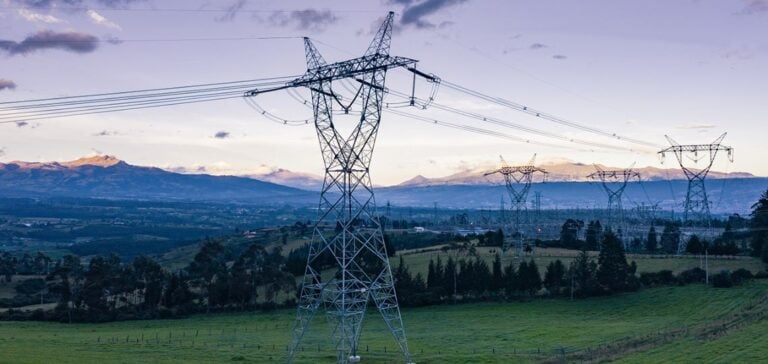Ecuador is facing a complex situation regarding its electricity supply, marked by scheduled outages and preventive maintenance measures.
The government recently announced a nationwide interruption in electricity service, scheduled to last at least eight hours.
The decision, taken by President Daniel Noboa, is aimed at carrying out maintenance work on the electricity transmission system, which is essential to guarantee continuity of service.
The blackouts are scheduled from 10:00 pm to 6:00 am local time, and will affect several provinces, including Morona Santiago, Santa Elena, Guayas and Azuay.
This situation is part of a wider context of energy challenges facing Ecuador.
In April, the country already suffered prolonged power outages, due to a drought that drastically reduced water levels in hydroelectric reservoirs.
The Mazar dam, which supplies the main hydroelectric plant, reached a critical water level of 0% in the middle of the month, illustrating the country’s vulnerability to climatic variations.
Power cuts, which had temporarily ceased with the return of rains in May, were reintroduced in June due to sediment build-up in the dam.
The challenges of preventive maintenance
The preventive maintenance announced by the government is a necessary response to recurring problems on the power grid.
Indeed, a recent outage, which occurred without warning, highlighted weaknesses in the system, notably a fault in the busbar of a substation.
This situation led the national electricity operator, Cenace, to declare an emergency in the area, due to low river flows affecting power generation.
The use of temporary solutions, such as the anchoring of a barge belonging to the Turkish company Karpowership in the Guayas River, testifies to the seriousness of the situation.
This barge, with a capacity of 100 megawatts, was set up to compensate for the country’s energy deficit.
The Vice-Minister of Electricity, Rafael Quintero, stressed the importance of these measures to stabilize the electricity supply, given that 92% of Ecuador’s electricity comes from hydroelectric power stations.
Economic and social implications
Power cuts and rationing measures are having a significant impact on the Ecuadorian economy.
Businesses, especially those dependent on a constant power supply, suffer financial losses and production interruptions.
This situation also creates social tensions, as citizens have to adapt to irregular electricity schedules, affecting their daily lives.
Authorities therefore have to navigate between the need to maintain electrical service and managing public expectations.
Implementing long-term solutions, such as improving infrastructure and diversifying energy sources, is essential to avoid future crises.
Ecuador also needs to consider investments in renewable technologies and energy storage systems to strengthen its resilience in the face of climatic hazards.
Future prospects
In the long term, Ecuador needs to rethink its energy strategy to meet the challenges posed by climate change and over-reliance on hydroelectricity.
Diversification of energy sources, including the development of solar and wind projects, could offer a sustainable solution.
In addition, improving energy efficiency and raising consumer awareness of demand management are key to reducing pressure on the power grid.
Recent events underline the importance of proactive planning and efficient management of energy resources.
Authorities also need to step up communication with the public to better manage expectations and provide information on the measures being taken to improve the situation.
By integrating innovative solutions and adopting a collaborative approach, Ecuador can look forward to overcoming its energy challenges and ensuring a reliable electricity supply for the future.






















